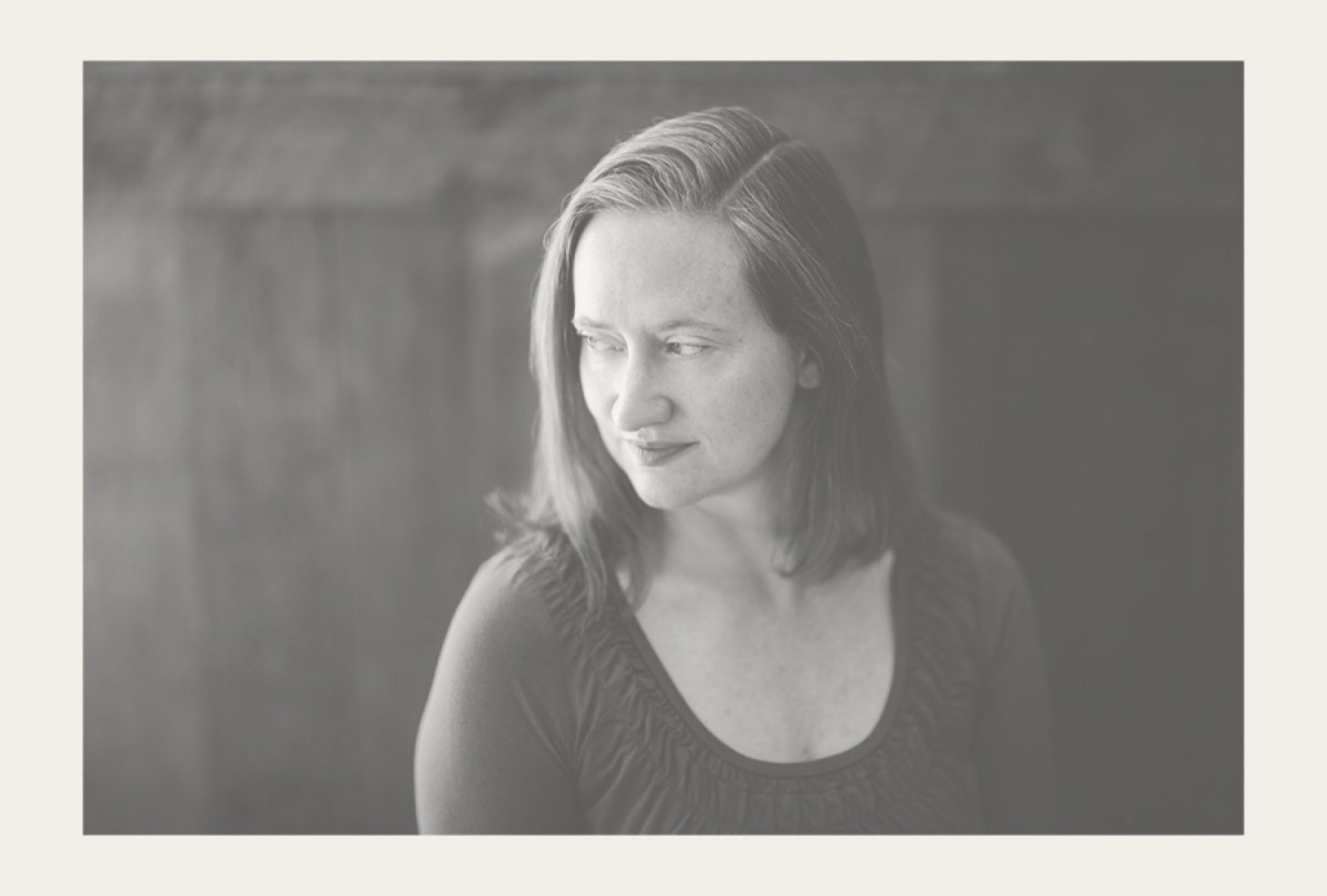
Rachel Grimes
"Eights"
By Joe Manning
2017 Southern Music Issue CD featuring Kentucky
Track 25 – “Eights” by Rachel Grimes
In 1975, when she was five years old, Rachel Grimes rode in a horse-drawn wagon down Main Street in Stanford for Fort Logan’s bicentennial parade, celebrating the establishment of one of the earliest European settlements in what became the Commonwealth of Kentucky. She wore a calico dress and bonnet stitched by her mother, and her little brother, Edward, donned a straw hat and knickerbockers hitched up with suspenders. Her uncle played Daniel Boone. Grimes was regaled that day with stories of the seven generations of Kentuckians who preceded her, of the grit and determination of her kinfolk who’d settled at Forts Logan and Boonesborough. She heard of the frontier intelligence of the Callaway girls, her ancestors, who were kidnapped by Cherokee and Shawnee raiders and rescued by a search party who followed the surreptitious trail of torn petticoat fabric the girls left through the woods.
Inoculated with a love of and fascination with her homeplace, Grimes became a student of its history. But discontinuities and apocrypha will trouble any attempt at a clear-eyed understanding of the past, and she discovered that the narratives she’d grown up with were complicated. Turned out the kidnapped girls were not directly related to her family. The territories were settled by speculators in an illegal land grab, swindling Native Americans. Her ancestors purchased enslaved Africans. For Grimes, the stories of people of color and women on the frontier rose above the din of white male heroism.
In her career as a pianist, arranger, founding member of the indie chamber-rock group Rachel’s, and internationally acclaimed composer, Grimes has graced metropolitan stages around the globe. The long reach of her creativity is, in some important regard, the result of her upbringing in Louisville and her exposure to the collaborative and experimental music scene that has been vibrant there since the eighties. She draws her water in rural Kentucky, though, and has returned to the Commonwealth’s Bluegrass region continuously throughout her life as though guided by a divining rod.
During the emotional process of moving her parents into nursing homes some years back, Grimes and her brother became the executors of a scattershot archive of family photos, papers, and ephemera. The elisions and erasures of the past gathered poignantly in Grimes’s mind on the repeated drives along the Kentucky River between her farm and her father’s home. Rural Kentucky is endlessly evocative to Grimes, and the bucolic is a rhizome that threads throughout her work, most notably on the records Book of Leaves (2009) and The Clearing (2015) and the film score Marion County, 1938 (2011). The dedication to unaffected simplicity in these compositions is nearly documentary. One hears in the melodies of her solo piano recordings a familiar landscape—rivers crisscross enormous swaths of fertility, karst topography folds like an emerald heirloom quilt rumpled after a fit of lovemaking—and narratives of belonging, faintly audible, as if through a screen door or an open car window in Carroll County.
On one of her long drives, Grimes occupied herself by contemplating an étude for piano she’d composed years before. “Eights” is a study of the interplay between eighth notes: the halves of halves of halves of the whole. A lesson on the division of time that lays bare the questions: How far have we traveled? When do we arrive? The song demonstrates the point and counterpoint of Zeno’s arrow halving time infinitely to isolate one moment, reside in one now, and learn the way forward. The thrum of a road is recalled, one that forks and bends and somehow arrives home.
Grimes released “Eights” as a single in early 2017, then expanded the piano étude to include strings and guitars. Renamed “A New Land,” it became the final piece in the as-yet-unreleased folk opera and film titled The Way Forth: Grimes’s intuitive, associative interrogation of Kentucky’s Bluegrass region from its settlement to the present. Consisting of love songs, new interpretations of a traditional hymn and an old Kentucky fiddle tune, and Baroque-style variations interwoven with spoken-word and four-part sung narratives, Grimes’s kaleidoscopic musical reckoning with individual and collective histories was to premiere at the Big Ears Festival in Knoxville in the spring of 2017. The night before the performance, Rachel received news from Louisville of the sudden death of her younger brother, Edward, her lifelong collaborator, a remarkably gifted musician and songwriter, drummer for the band Rachel’s, and founding member of the cinematic post-rock ensemble Seluah. He was forty-three.
Edward and Rachel had sorted through their family history together, labored side by side to make sense of the past’s inconclusiveness and how it informed them both. In the wake of Edward’s passing, The Way Forth took on a pointed and uncanny significance, and Rachel has leveraged these conjoined inheritances—the burden and promise of the past—toward the aim of uncovering some new emotional truths. “Eights,” written as an exercise in the division of time, became the resolution of Grimes’s attempt to rectify the dearth of female perspectives in our origin myths, including women within her own family whose influence winnowed through the generations. Their stories avoided erasure and came to rest in the work of a student who listens closely, learns the lessons before her, and hears what has been left out.
Return to the Kentucky Music Issue liner notes.
Order the 19th Southern Music Issue & CD featuring Kentucky.


